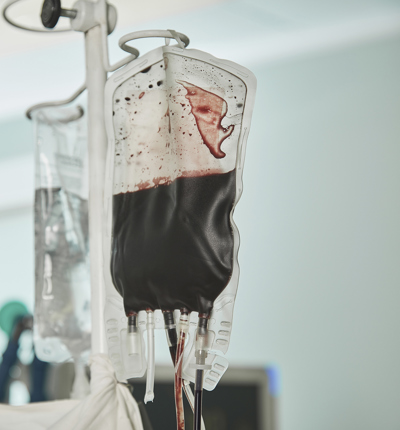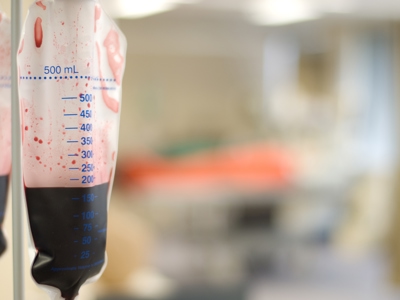
Infected blood compensation scheme is welcome but lawyers raise concerns for HCV victims
Human rights lawyers at law firm Leigh Day representing victims of the contaminated blood scandal cautiously welcomed the government’s compensation scheme but raised concerns that the proposals appeared to not address the long fought against disparity of those infected with mono-HCV and mono-HIV.
Posted on 16 August 2024
While the government’s proposed scheme will ensure that the existing infected blood support schemes, begun to be paid before 1 April 2025, will continue be paid for life, it is likely that the distinction between payments to those infected by mono-HIV and mono-HCV will continue.
While there is desperate need to create a compensation scheme quickly, it is imperative that any compensation scheme should ensure compensation is fair and just, say Leigh Day lawyers who together represent more than 300 people infected and affected by the contaminated blood scandal.
In May 2024, a report into the infected blood scandal by Sir Brian Langstaff found a “catalogue” of failings by health authorities and individuals, with the government releasing a compensation scheme summary the next day laying out their plans for compensation. However, some aspects of these plans, such as a lack of clarity and transparency over how compensation decisions would be made, caused distress within the community of people infected and affected by infected blood.
Sir Robert Francis KC was then appointed chair of the Infected Blood Compensation Authority and throughout June consulted with victims of the scandal and legal experts, including lawyers at Leigh Day, to put together recommendations for a more comprehensive compensation scheme.
Leigh Day submitted their recommendations on behalf of their clients as part of this consultation process.
The proposals in response to recommendations by Sir Robert Francis, announced on 16 August 2024, acknowledged that HCV can lead to a series of life-threatening medical conditions, particularly health conditions unrelated to the liver. However the financial loss element of the scheme, appears to perpetuate the disparity between those infected by HCV and HIV.
While new medical treatments for HCV have radically improved the success rate in clearing the virus, even if the virus is now cleared (or was cleared for a minority of individuals by earlier treatments that were far less effective) the individual will continue to live for the rest of his or her life with whatever disabilities have been caused by carrying the virus for decades. This can mean that their ability to work is often significantly impacted. Additionally, the early treatment often had a significant impact on those infected which can cause secondary health conditions and in some cases, these secondary conditions, caused by earlier treatments, can be worse than the underlying condition itself.
While individuals appear to be able to make supplementary applications, it means parity will not be achieved at first instance or in some cases, not at all. This remains incredibly important to our clients and will only continue to compound the harm already suffered.
One of the largest concerns reported by individuals within the infected blood community is the lack of medical evidence because it has been destroyed entirely or selected records destroyed. This is particularly a problem for those who have died. Their loved ones often experience difficulty in obtaining confirmation that their loved one received a blood transfusion or blood product because medical records have been destroyed in line with hospital and GP retention policy.
The Expert Group Final Report suggests that a death certificate which may reference HCV, HBV, HIV and / or include a condition associated with infection, may be appropriate evidence which Leigh Day’s infected blood team welcomed. However, there is still reference to medical records confirming a blood transfusion or blood product took place, or reference to treatment or operation taking place in which the administration of a blood transfusion or blood product was likely.
This is concerning as medical records are often not available for individuals, particularly those who have died. If the proposed compensation scheme mirrors that of the existing infected blood support schemes, many individuals may face difficulty in accessing the compensation scheme at all. Leigh Day’s infected blood team urged the government to seriously contemplate the current practices of the existing blood support schemes and ensure the same is not repeated in its final compensation scheme.
Leigh Day partner Gene Matthews, who represents clients infected and affected by the scandal, said:
“We cautiously welcome the Government’s long-awaited announcement in relation to the Infected Blood Compensation Scheme and their confirmation that the existing support payments will be paid for life. This change, in particular, was incredibly important to our clients.
“However, the announcement as reported so far appears to continue the historical disparity in respect of funds awarded to those infected with mono-HIV versus mono-HCV infection. The largest cohort within the infected blood community are those infected with HCV and our clients are disappointed that it appears that this long fought against discrimination will continue.
“We recommended that people affected by HCV, who continue to endure the serious effects of the virus, should have equal compensation to those affected by HIV, but, disappointingly, this was not recommended by Sir Robert.
“In addition, the proposals reference certain medical evidence may be required to access the scheme that may not be available to all applicants because it has been destroyed. This fact is well known to the government and we urge them not to repeat the same unfair approach practiced by the infected blood support schemes.
“We are considering the announcement and the updated proposals in detail before we can fully advise our clients on next steps.”
ENDS

Gene Matthews
Gene specialises in consumer law, product liability and data protection claims mainly brought as group claims/ multi-party actions

Lawyers at Leigh Day say Infected Blood Inquiry final report is vindication for the 300 clients they represent
Lawyers at Leigh Day, who represent around 300 people impacted by the infected blood scandal, say the findings of the Infected Blood Inquiry’s Report are a vindication of their clients’ fight for justice spanning four decades.


